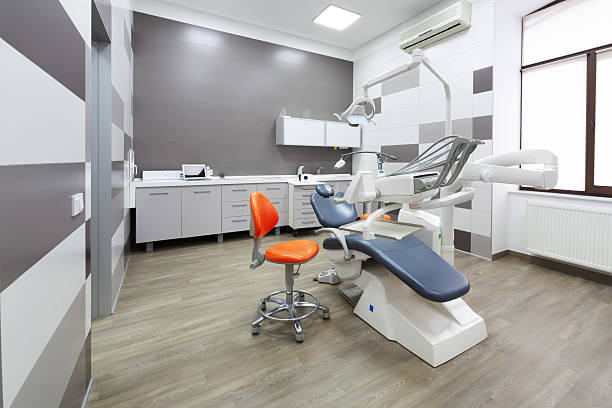Dental Office IT Checklists for New Clinic Setups (2025 Edition)
Setting up a new dental clinic in 2025 comes with more than just choosing the right chairs and tools—it also demands a strong technology foundation. From digital imaging to patient record security, every system must be carefully planned. One of the most important first steps is conducting a dental strategic assessment to understand your current and future IT needs.
This assessment helps identify the right hardware, software, and networking solutions required to operate smoothly. It ensures compliance, improves patient data protection, and prepares your clinic for future scaling.
Here’s a complete IT checklist designed for new dental office setups in 2025:
1. Network and Internet Infrastructure
Your dental practice will rely heavily on a stable and secure internet connection. Make sure your network is fast, protected, and built to handle multiple devices and large file transfers.
- Install business-grade routers and firewalls
- Use managed Wi-Fi with staff and guest access separation
- Ensure network cabling supports high-speed internet
2. Computer Systems and Workstations
Select workstations that match the software requirements and daily demands of a busy dental clinic.
- Use computers with SSDs and at least 16GB RAM
- Include dual-monitor setups at each operatory
- Ensure compatibility with dental imaging and charting software
3. Practice Management Software
Choose a trusted dental software that supports scheduling, billing, and patient records. Integration with digital x-rays and imaging systems is key.
- Cloud-based or on-premise options
- User-friendly interface
- HIPAA-compliant data storage
4. Digital Imaging and X-Ray Systems
Install reliable and compatible imaging systems to streamline diagnosis and treatment planning.
- Intraoral cameras
- Digital panoramic X-rays
- Software integration with patient records
5. Data Security and Backup Solutions
Patient data security is non-negotiable. A strategic assessment of your data protection systems can highlight any weak points.
- End-to-end encryption
- Daily automatic backups (cloud and local)
- Antivirus and anti-ransomware protection
6. HIPAA & PCI Compliance Tools
Compliance with healthcare and payment regulations is essential. Tools should be in place to ensure you meet industry standards.
- Encrypted email solutions
- Secure payment systems
- Role-based access control
7. Communication and VoIP Systems
A professional communication setup improves front-desk operations and overall patient experience.
- VoIP phone systems with call tracking
- Text reminders and patient recall systems
- Integration with CRM tools
8. IT Support and Maintenance Plan
Avoid downtime by arranging proactive IT monitoring and remote support. Consider working with a dental-focused IT provider who understands the unique demands of your clinic.
- Remote monitoring and updates
- Hardware replacement planning
- On-call tech support availability
Conclusion
Building a reliable and secure IT infrastructure begins with a dental strategic assessment and ends with consistent system maintenance. Each part of your dental office’s IT environment—from your computers to your backups—should work together without disruption.
At DNTLIT, we specialize in setting up dental clinics with tailored IT solutions that meet your exact needs. From planning to protection, we guide you at every step. Whether you’re opening your first clinic or expanding to a new location, we’re here to ensure your systems run smoothly from day one.
FAQs
Q: How early should I start planning my dental office IT setup?
A: Start at least 2–3 months before opening to allow time for assessments, ordering, and installations.
Q: Is cloud software better than on-premise for dental clinics?
A: Cloud-based systems offer flexibility and remote access but require a reliable internet connection. Choose based on your workflow and connectivity.
Q: What is included in a dental strategic assessment?
A: It reviews your clinic’s current and future technology needs—hardware, software, network, compliance, and scalability.
Q: How do I ensure HIPAA compliance in my IT systems?
A: Use encrypted storage, secure communication tools, and restrict system access based on user roles.Q: Do I need a dedicated IT provider for my dental clinic?
A: Yes, dental-focused IT experts understand specific software and hardware needs better than general providers.



